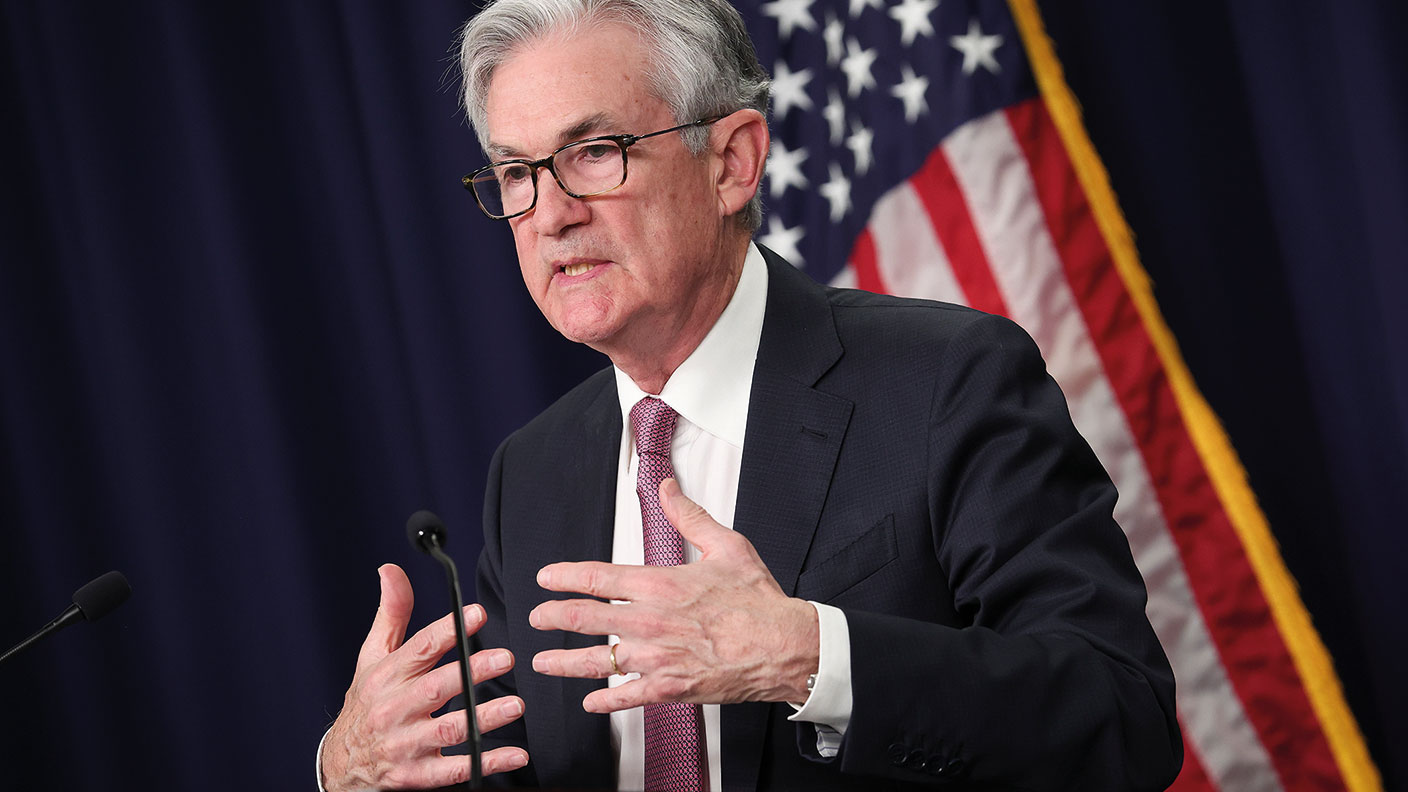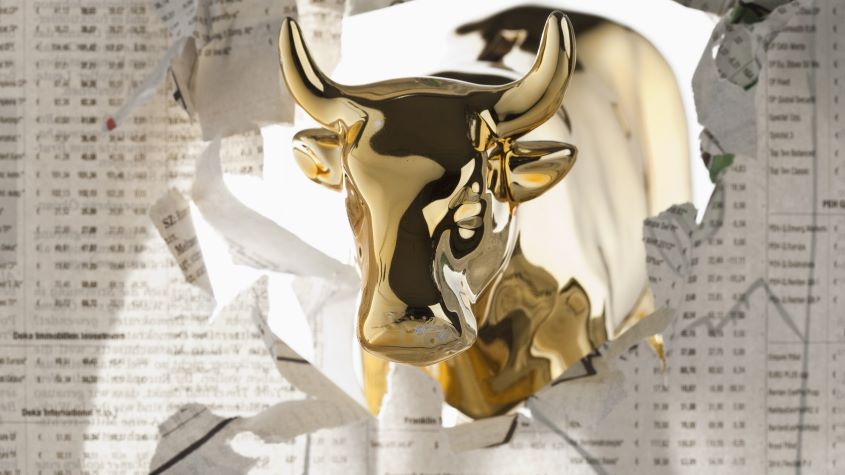Interest-rate rises mean more pain for stocks
Interest rates are rising around the world as central banks try to get inflation under control. That’s hitting stockmarkets – and there is more pain to come.

Get the latest financial news, insights and expert analysis from our award-winning MoneyWeek team, to help you understand what really matters when it comes to your finances.
You are now subscribed
Your newsletter sign-up was successful
Want to add more newsletters?

Twice daily
MoneyWeek
Get the latest financial news, insights and expert analysis from our award-winning MoneyWeek team, to help you understand what really matters when it comes to your finances.

Four times a week
Look After My Bills
Sign up to our free money-saving newsletter, filled with the latest news and expert advice to help you find the best tips and deals for managing your bills. Start saving today!
The position of central bankers today “recalls an old joke about a cab driver telling a lost tourist asking for directions: If I were you, I would not be starting from here”, says John Plender in the Financial Times. The Bank of England has warned that inflation will top 10% later this year while issuing gloomy growth forecasts. As central banks “try to engineer a soft landing” the risk of a “policy error” that crashes the economy is high.
“The Bank of England is skirting around the ‘r’ word but its grim set of growth forecasts all but confirm that the UK is heading for a recession next year,” says Mehreen Khan in The Times. Policymakers last week raised interest rates by 0.25 percentage points to 1%, the highest level since February 2009. Three of the nine members of the monetary policy committee wanted to go further and voted for a 0.5% rise. Markets now expect UK interest rates to keep rising until they hit 2.5% next year.
Racing out of control
“For more than a year now, Threadneedle Street has kept its head in the sand”, even as it became clear that inflationary pressures in commodity and labour markets were racing out of control, says Liam Halligan in The Daily Telegraph. Policymakers argue that the war in Ukraine has changed the outlook, but that is nonsense. In January – pre-invasion – “CPI inflation was already at 5.5%, a 30-year high”. Caught behind the curve, the bank will now have to raise rates faster, inflicting unnecessary economic pain on households in order to “slay the dragon” of price rises and win back some of its battered credibility.
MoneyWeek
Subscribe to MoneyWeek today and get your first six magazine issues absolutely FREE

Sign up to Money Morning
Don't miss the latest investment and personal finances news, market analysis, plus money-saving tips with our free twice-daily newsletter
Don't miss the latest investment and personal finances news, market analysis, plus money-saving tips with our free twice-daily newsletter
In America, the Federal Reserve has gone further. Last week it raised interest rates by half a percentage point and also started the process of unwinding “its huge bond holdings”, says the New York Times’ DealBook. The move “signals urgency” about getting inflation back under control. Fed chair Jerome Powell said that further half-point increases are “on the table”. Until recently the Fed had “believed that inflation would ease as supply shortages moderated and as the economy evened out after early-pandemic disruptions”. Now renewed lockdowns in China and the war in Ukraine mean that “the notion of a return to some kind of pre-pandemic normal without intervention has been abandoned”.
Stockmarkets are getting the message that the Fed is serious about tighter policy. The S&P 500 has suffered five consecutive weeks of losses, its longest losing streak since 2011, and is down more than 16% since its peak. That’s the worst four-month start to a year since 1939 and a technical bear market (defined as a 20% drawdown) seems imminent. On Monday, global shares, as measured by the FTSE All-World index, had their worst day since June 2020.
“Unfortunately for investors, the Federal Reserve probably doesn’t feel their pain,” says Justin Lahart in The Wall Street Journal. In the past the Fed has taken pains not to sink the stockmarket, but today inflation-fighting has become its priority. With valuations still high and US labour markets robust, they have little reason to pause the rises. There is likely plenty “more pain in store for stocks”.
Get the latest financial news, insights and expert analysis from our award-winning MoneyWeek team, to help you understand what really matters when it comes to your finances.
Alex is an investment writer who has been contributing to MoneyWeek since 2015. He has been the magazine’s markets editor since 2019.
Alex has a passion for demystifying the often arcane world of finance for a general readership. While financial media tends to focus compulsively on the latest trend, the best opportunities can lie forgotten elsewhere.
He is especially interested in European equities – where his fluent French helps him to cover the continent’s largest bourse – and emerging markets, where his experience living in Beijing, and conversational Chinese, prove useful.
Hailing from Leeds, he studied Philosophy, Politics and Economics at the University of Oxford. He also holds a Master of Public Health from the University of Manchester.
-
 UK unemployment hits highest level since 2021 – will interest rate cuts follow?
UK unemployment hits highest level since 2021 – will interest rate cuts follow?UK unemployment reached its highest rate in almost five years by the end of 2025. Is AI to blame and will the Bank of England step in with an interest rate cut in March?
-
 Did UK inflation fall in January?
Did UK inflation fall in January?After rising in December, analysts expect the next round of UK inflation data to show that disinflation returned in January
-
 Why investors can no longer trust traditional statistical indicators
Why investors can no longer trust traditional statistical indicatorsOpinion The statistical indicators and data investors have relied on for decades are no longer fit for purpose. It's time to move on, says Helen Thomas
-
 Is it different this time for Japanese stocks?
Is it different this time for Japanese stocks?Analysis Nikkei 225 Index has jumped 19.8% this year, and there are signs the rally could continue.
-
 As China reopens, why pick an income strategy?
As China reopens, why pick an income strategy?Advertisement Feature Yoojeong Oh, Investment Manager, abrdn Asian Income Fund Limited
-
 Is Japan the best market to invest in now?
Is Japan the best market to invest in now?Opinion Japan puts Western economies to shame and offers good value for both equity and bond investors, says Max King.
-
 The highest yielding S&P 500 Dividend Aristocrats
The highest yielding S&P 500 Dividend AristocratsTips Dividends are a key component of investment returns in the long-term. A portfolio of dividend aristocrats is a great way to build wealth and a sustainable income stream.
-
 2023 will be a bumper year for stocks. Here’s how to play the rally
2023 will be a bumper year for stocks. Here’s how to play the rallyTips Dominic Frisby explains why he thinks the market rally could have further to run in 2023 despite macroeconomic headwinds
-
 A new dawn for Asian markets?
A new dawn for Asian markets?Advertisement Feature James Thom, Investment Manager, abrdn New Dawn Investment Trust plc
-
 China’s post-covid investment boom off to a slow start. Should you still invest in China?
China’s post-covid investment boom off to a slow start. Should you still invest in China?Advice Investors are no longer bullish on the China shop but the gloomy consensus on Beijing’s economy might be unfair. Should you invest in China?